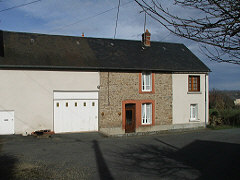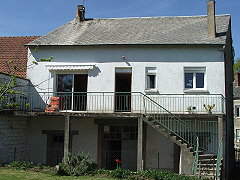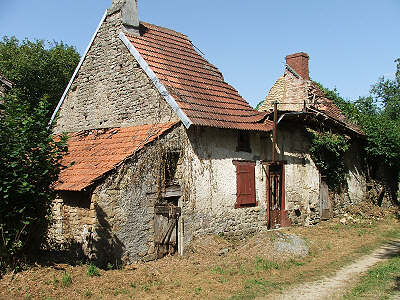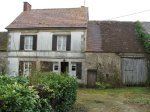Buy to Let in France
A buy to let in France is generally regarded as a good financial investment. 40% of French people choose to rent rather than buy a property, so the French rental market has good demand. The French property market has shown steady price increases over the years, and is not subject to the booms and busts encountered elsewhere. An overseas property investment in France should give you a good capital appreciation as well as a steady income from rental revenues.
Location
When considering a French property investment, especially a buy to let in France, the first thing you have got to get right is the location. Bearing in mind that your property must appeal to as many people as possible and that you are more likely to let long term to a French resident, the best location is in a town or within 10 minutes maximum driving time from a town. Many French people go home at lunchtime, so easy access is essential. A good alternative is a large village with shops and a school.
When choosing an area, have a good look round. Would you live there? If not, why not? It is important to decide on your target market before you even start viewing houses, as this will also affect where you look for a suitable property.
House or apartment?
Apartments are the most popular in large towns and cities. In Limousin, you should look in Limoges, Brive-la-Gaillarde, Tulle and Gueret. Houses, with at least two bedrooms and a garden, are more sought after in the smaller towns and villages of the region and appeal more to families. As apartments tend to attract single people and young couples, they have a higher turnover of tenants. Families settle for longer as they usually have more ties to the local community.
Most apartment blocks are co-ownership, with shared responsibilty for maintenance and repairs to the external structure and communal areas. With a house, these are the sole responsibilty of the owner.
Furnished or unfurnished?
Most buy to lets in France are unfurnished. Furnished properties can command a higher rental, but appeal mostly to young people.
Fixtures and fittings should be of a good standard. You do not need to spend a fortune, but decent kitchen and bathroom fittings are a good investment.
Pricing
To get an idea of how much you can charge, have a look in the local paper or at adverts placed in local shops, supermarkets and on the internet. You can also get advice from an estate agent or the notaire.
Finding a tenant
You can find a tenant for your buy to let in France by advertising in local shops and supermarkets. An ad in the local paper will also usually get a good response. You can tell people that you have a property for rent and word of mouth will probably result in some enquiries.
An agency offers various services. They can just find you a tenant, deal with the paperwork or provide a full management service.
Tenancy agreement
|
Having found a potential tenant, it is normal for them to provide a file containing copies of pay slips, employment contract, references, previous rental agreement, bank details (not bank statements), etc. When you are satisfied that you have found someone suitable, the tenancy agreement can be drawn up. This should preferably be done either by a notaire or an agency. Whilst considering a buy to let in France, you should be aware that French legislation favours the tenant rather than the landlord. |
Good rental potential |
A properly written agreement is important for you as the landlord in case of future disagreements.
For unfurnished properties, the lease agreement is for 3, 6 or 9 years. The landlord has to give six months notice if he wants the tenant to leave and there has to be a good reason for giving a notice to quit. Acceptable reasons are that you want the property for your own use or for a close family member, you want to sell (after first offering it to the tenant at a fair price), persistent non-payment of the rent or disregard of the lease agreement, or to do major works to the property. The tenant can give just three months notice and leave. The lease is automatically renewable if neither side has given notice.
For furnished properties, the minimum agreement is for 12 months. The tenant only has to provide one months notice and the landlord three months.
Once the agreement has been signed and a date agreed, the tenant will pay a security deposit (equivalent to one months rent) plus one months rent in advance. Either on the day they move in, or just before, a report should be drawn up detailing the condition of the property and any fixtures and fittings and be signed by both parties. When the tenant moves out, this report is used to note any damages which can be deducted from the deposit, although reasonable wear and tear is allowed.
Using an agency
As mentioned above, an agency offers various services. For a one-off fee, usually shared between the owner and tenant, an agency can find you a tenant and/or deal with the initial paperwork. This includes the file that the potential tenant provides, the tenancy agreement and the property report. One advantage of this is that the agency can also do a credit check and confirm that the tenant has sufficient funds to pay the monthly rent.
For a full management service either through an estate agents or with a rental management agency, the charge is between 8% and 10% of the rent. They will deal with any problems and send you regular monthly payments. For the higher charge, insurance is usually included to cover you in the event of non-payment by the tenant and any gaps between tenants. Should the tenant not pay the rent, the management company will deal with all the legal procedures required for eviction and reclaiming missed payments, if you have the insurance.
Buy to let mortgages
It is normal to pay at least 20% of the purchase price for a buy to let in France.
The French mortgage market offers a good choice of financial products for an overseas property investment:
- Fixed rate
- Variable rate
- A combination of the above
- Interest only repayment
- Capital repayment
- A combination of the above
For more general information about mortgages in France, please see our article: French Mortgages. Note that rental income, or potential rent, counts as revenue in the banks calculations of your debt level, and you could therefore apply for a larger loan for a buy-to-let property than for a residential home.
A good French mortgage broker will be able to assist you with your application. Not all lenders accept applications for investment property purchases. A broker will know how to package your application and which lenders to approach.
Taxes
Your buy to let in France will be subject to the following taxes:
- Income tax: you will be liable to pay tax on your rental income in France and in the UK. You should register at your local Hotel des Impots. The standard rate for non-residents is 20%. Any tax paid in France can be offset against tax due in the UK. You do not pay twice. It is important to get legal advice concerning the tax regime that is best for you, in particular if you are letting furnished accommodation.
|
- Taxe d'habitation: paid by the tenant - Taxe foncière: paid by the owner - Capital gains tax: 34.5% of the gain for the first five years and tapering relief per year for the following 25 years. After 30 years, you can sell and keep all the profits from your overseas property investment. |
In a popular market town |
This article is intended as an overview of the French residential rental market. It is always recommended that you seek professional financial and legal advice concerning any overseas mortgage or property investment.
Go to Property Sale Limousin Home Page
from Buy to Let in France
Recent Articles
-
Property for Sale France - Lovely Victorian Manor House in a Tranquil Setting
Property for sale France - country estate with a manor house offering 3 reception rooms, fully fitted kitchen, 4 double bedrooms. Cellars, garages, outbuildings. Gardens, pasture, woodland, lake. -
Authentic Creuse House for Renovation - 2 Traditional Village Houses
A Creuse house for renovation - in fact 2 former houses to convert into one. Structural work required. 66m² floor area with attic above. Detached outbuilding. Attached garden and another plot opposite -
Limousin Property for Sale - Creuse House and Attached Barns
A farmhouse originally built in 1869 with attached barns in Creuse. We have more Limousin property for sale on our website.






